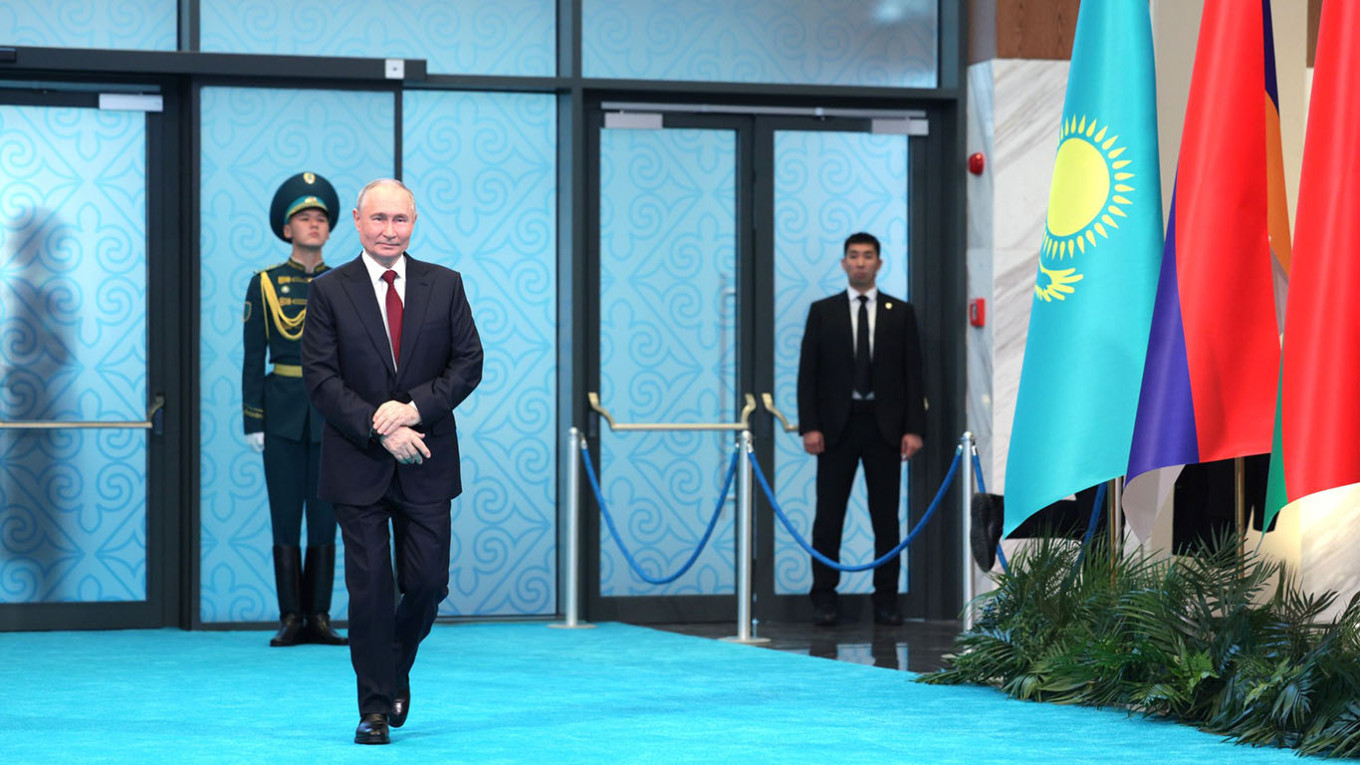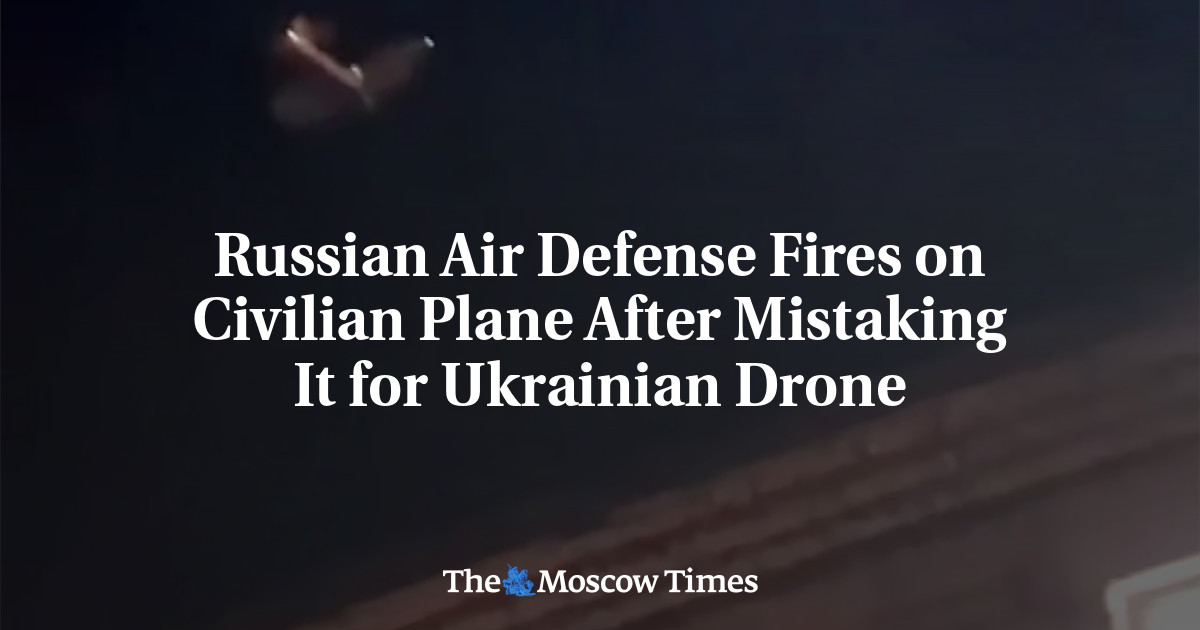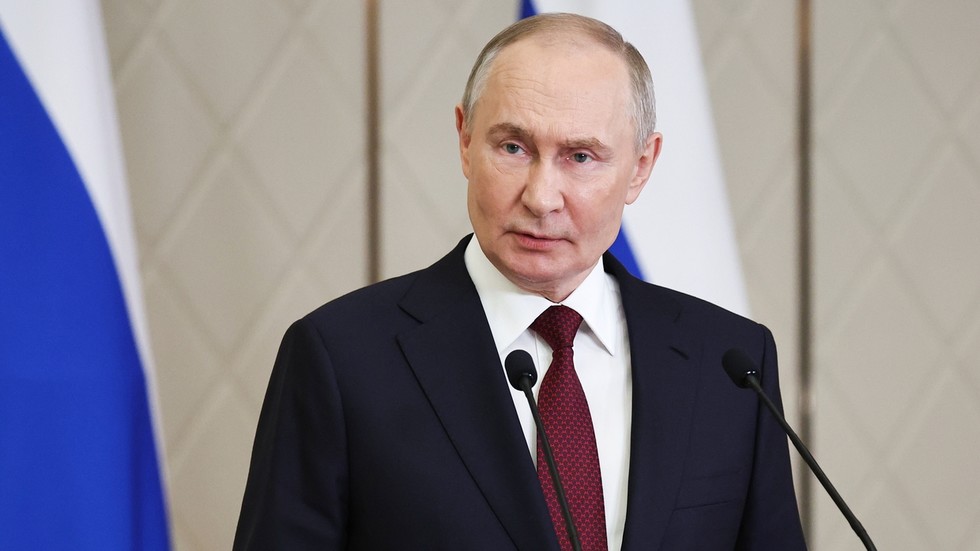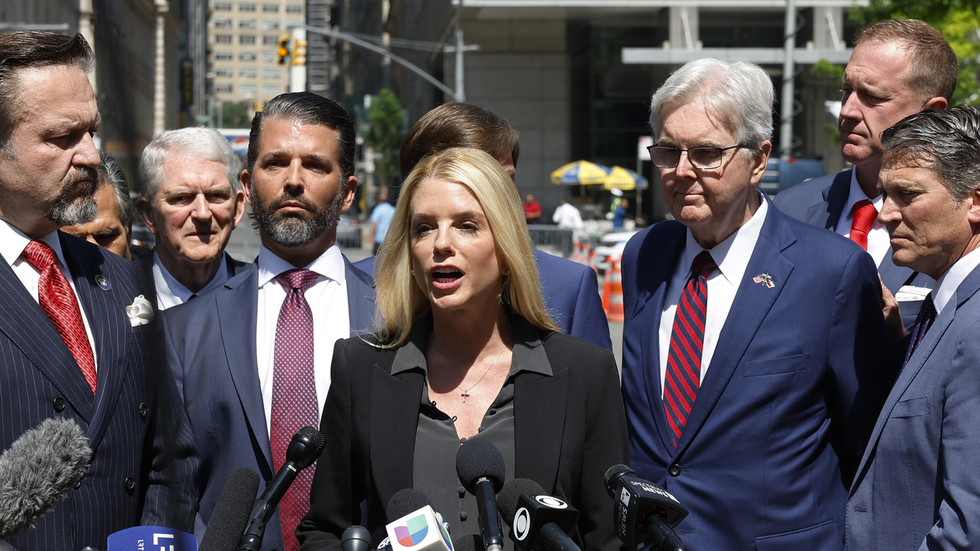 kremlin.ru
kremlin.ru
President Vladimir Putin said that Wednesday night's large-scale air attack against Ukraine was Moscow's response to Kyiv's continued use of Western-supplied missiles to strike targets inside Russia.
"We carried out a comprehensive strike," Putin said during a visit to Kazakhstan on Thursday. "It was a response to ongoing attacks on our territory using [U.S.-supplied] ATACMS missiles."
The Kremlin leader said Russia launched more than 90 missiles and 100 drones in the overnight attack, claiming that 117 targets were hit. Those strikes left over one million Ukrainians without power in freezing temperatures.
Putin warned that Moscow was monitoring Ukraine's stockpile of long-range weapons and "where they are." He claimed that Russia's military was "forced to test" its new Oreshnik ballistic missile on Ukraine last week and suggested more such "tests" could follow if attacks on Russian territory persisted.
He described the Oreshnik missile as capable of turning targets "into dust" and boasted that multiple launches of the weapon could be "comparable to a nuclear strike." Putin also claimed the missile traveled at "around three kilometers per second" and reached temperatures "like the surface of the Sun" upon impact.
At the same time, the Kremlin leader claimed that Kyiv had attempted to hit "buildings of state importance" in Saint Petersburg and Moscow since the start of the war.
"If there are more strikes on Russian territory using Western long-range missiles," Putin warned, "we will respond, including with possible continued testing of Oreshniks in combat conditions."
Putin arrived in Astana, Kazakhstan Wednesday evening to attend the summit of the Collective Security Treaty Organization.
A Message from The Moscow Times:
Dear readers,
We are facing unprecedented challenges. Russia's Prosecutor General's Office has designated The Moscow Times as an "undesirable" organization, criminalizing our work and putting our staff at risk of prosecution. This follows our earlier unjust labeling as a "foreign agent."
These actions are direct attempts to silence independent journalism in Russia. The authorities claim our work "discredits the decisions of the Russian leadership." We see things differently: we strive to provide accurate, unbiased reporting on Russia.
We, the journalists of The Moscow Times, refuse to be silenced. But to continue our work, we need your help.
Your support, no matter how small, makes a world of difference. If you can, please support us monthly starting from just $2. It's quick to set up, and every contribution makes a significant impact.
By supporting The Moscow Times, you're defending open, independent journalism in the face of repression. Thank you for standing with us.
Continue
![]()
Not ready to support today?
Remind me later.

 By The Moscow Times | Created at 2024-11-28 12:10:23 | Updated at 2024-11-28 14:44:52
2 hours ago
By The Moscow Times | Created at 2024-11-28 12:10:23 | Updated at 2024-11-28 14:44:52
2 hours ago








